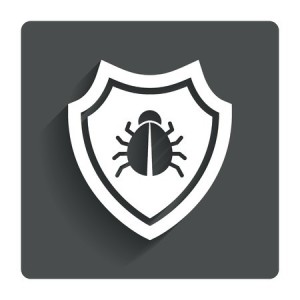There are a couple of questions many business owners ask when it comes to hacking, and those two questions are:
- How can I tell if I have been hacked?
- What steps do I take if someone has hacked my business?
Unfortunately, many small business owners do not know they have been hacked. Apart from ransomware, there are many cybersecurity events that go unnoticed. Can you believe that many small businesses and medium-sized businesses can have data breaches that go unnoticed for a significant period of time, including several years? The breaches that are noticed are eventually noticed by someone outside the business, including law enforcement officials.
Can you imagine being breached and not knowing this has occurred until a third-party notifies you? If you data breach occurs and it goes undetected for a substantial period of time, you may never identify what actually caused the breach to occur in the first place. When you do not know how, why, or where the data breach took place, you may start questioning if all of your company’s data has been compromised.
How Do You Know If You Have Been Hacked?
When you have a full understanding of the different types of hackers and what their intentions are, you will be able to understand how anyone can be hacked. There are different businesses, small, medium, and large, that can all become a target for hacking. Hackers look for sensitive data that has not been carefully protected.
What Type Of Hacks Are More Common?
It does not matter if a hack is basic or advanced because even a basic hack can cause severe damage to a business. A small or basic hack can result in your computers or any devices doing things that they should not be doing. Some of the common hacker techniques include the following,
- viruses
- Distributed Denial of Service (DDoS) or Denial-Of-Service attack (DoS attack)
- fake Wireless Application Protocol (WAP)
- phishing attacks
- in-house attacks
What Should You Do After A Hack Takes Place?
Do you have a plan in place if a hack does take place in your workplace? Your employees need to be trained well enough so they will be able to identify an attack on the business. When your employees are trained, they will be able to help your business get back to operating at its normal pace. Your business needs to get back to business as soon as possible after an attack has been identified.
If you have noticed that your system is behaving unusually and if you notice suspicious files that seem to be harmful, an attack has likely taken place. Professional and experienced hackers know how to carefully cover all their tracks. We suggest that you look carefully at your systems’ log files.The hackers also know how to delete those log files as well.
After you have identified you have been hacked, you should make sure the attack has been confirmed. Once there has been confirmation of the attack, you should check your computers, devices, and your networks to determine if anything else has been compromised. You will need to identify how much information the hackers have obtained.
When security breaches occur, critical data and information can be lost when your systems are down, include your network connections and content that is stored in your RAM. You will need to consult a professional so you can fully understand the options you have at this point.
It is extremely critical that you have the proper backups in place. It is also important that you have the right Managed Service Provider (MSP) that will provide you with the tools and resources you need to conduct business as usual after an attack has taken place. Contact us today for more information on how you can protect your business from hackers.



